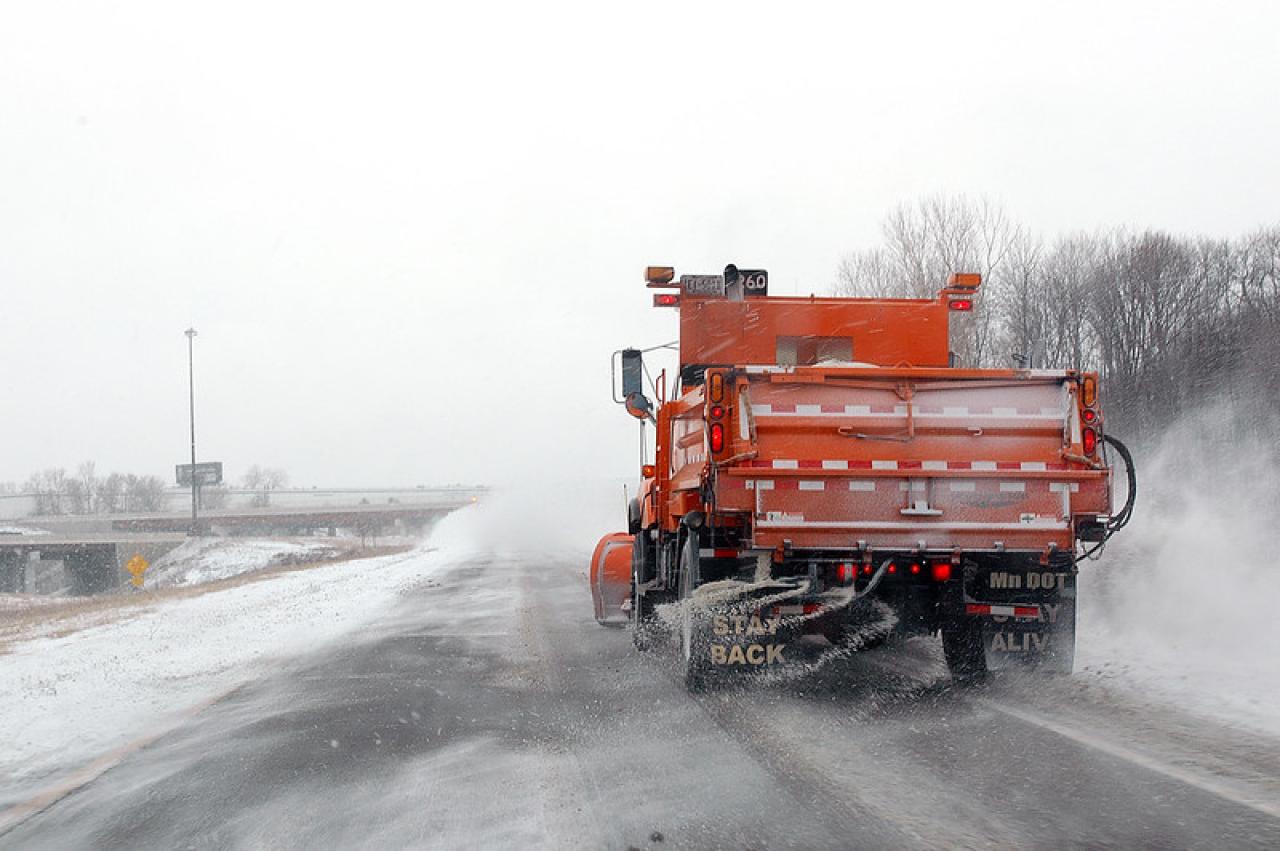Reduce salt pollution

Chloride or salt is commonly used as a deicer in Minnesota. Unfortunately, it's also been in the headlines this winter as salt levels in our lakes and rivers have increased posing risks to aquatic life and our drinking water.
Salt or chloride is a permanent pollutant; it does not degrade over time in our environment. As a result, just one teaspoon of salt is enough to permanently pollute 5 gallons of water! About 350,000 tons of deicing chemicals are applied just in the metro area each year, and most of it (about 78 percent) is retained in local surface and groundwater.
As we noted in the 2016 State of the River Report, chloride levels in the metro Mississippi River increased 81 percent between 1985 and 2014. While river levels are still low, many nearby lakes and tributaries that connect to the river aren’t so lucky. According to state data, 50 waters are already impaired by chloride and another 75 are high risk.
FMR is part of a coalition of organizations working together to advance chloride reduction legislation, using a voluntary certification approach.
This multi-part approach includes the following:
- Statewide voluntary “smart salt” training: Better training for private and public salt applicators can reduce salt application 30-70 percent without compromising public safety. Minnesota's existing (federally-funded) Smart Salt training program is currently restricted to the metro area.
- Commercial applicator certification fees: State law must be changed to allow the state to charge fees to cover the costs of training and certification for commercial applicators, who stand to benefit from liability protection (below).
- Liability protection: While public institutions already have liability protections, commercial applicators who become certified "smart salt” contractors would be able to apply for liability protection that reduces their risks for "slip and fall" lawsuits if they are properly applying de-icing chemicals (and taking careful records).
This approach, already in place in other states, reduces business risk, minimizes chloride pollution without compromising public safety, and makes the modest cost of certification a worthwhile business investment.
You can help!
Become a River Guardian
Sign up to become a River Guardian, and we'll let you know when important river issues arise. We make it quick and easy to contact decision-makers and make your voice heard. River Guardians are also invited to special events, including happy hours, to learn more about important legislative and metro river corridor issues.
Keep up to date
We write regular Water program and Legislative updates about key environment and water quality issues. You can find them on social media (Facebook and Twitter) and in our e-newsletter, Mississippi Messages.
Check out the full slate of FMR's legislative priorities.